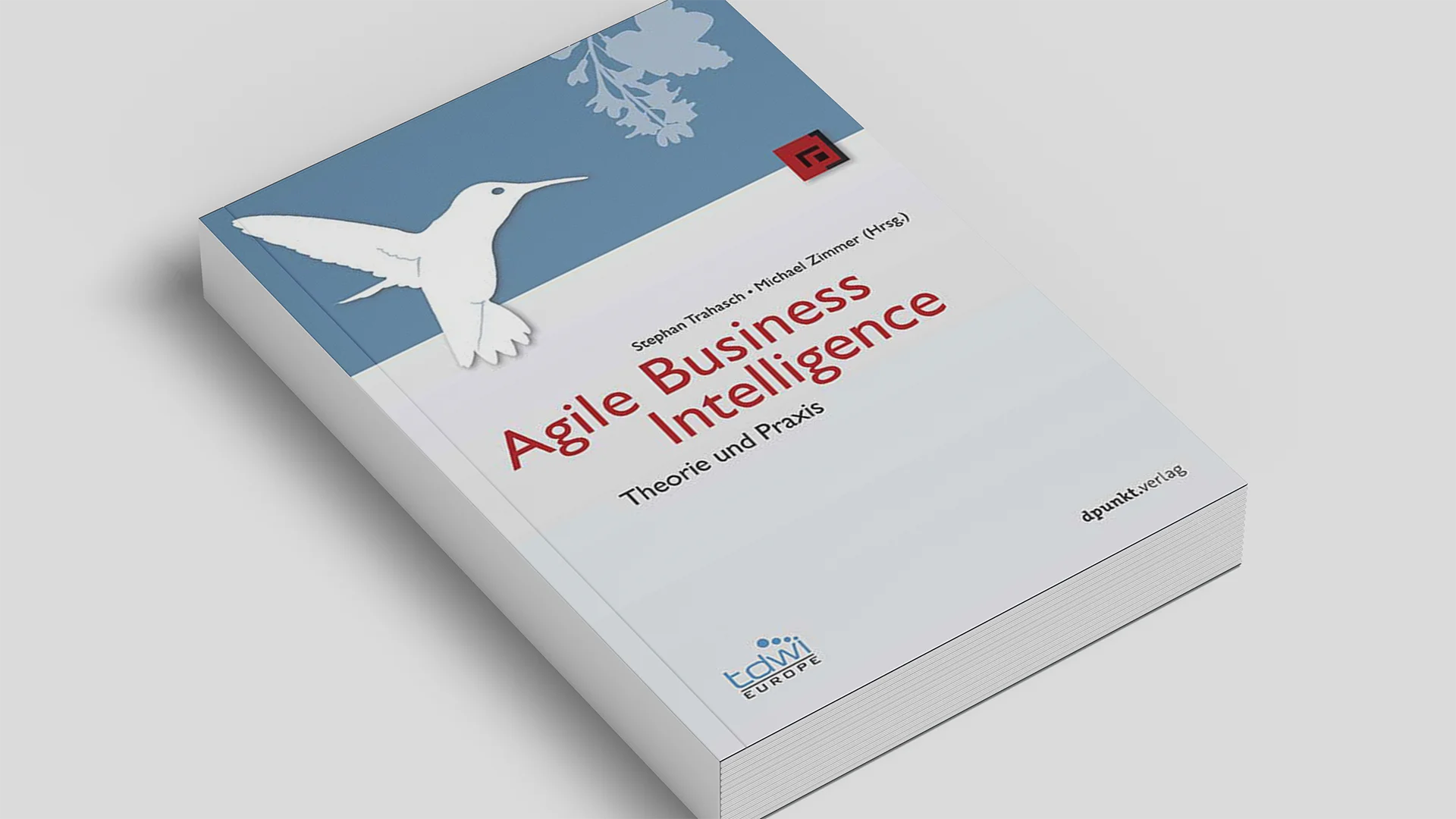In 2015, I contributed - spontaneously - a chapter to a book for the second time. Working on it was a lot of fun. That's partly because of the topic, but also because of the great editorial team.
My contribution (only available in German) to the book was the chapter on how the Data Vault modeling method can be used for agile data warehouse architectures. Using an example from my fictitious company FastChangeCoTM, this is illustrated in the course of the chapter.
The following description of the book I have essentially taken from the blurb of the book and added a few more details.
Agile methods and approaches are also successfully used in BI projects today. There is a whole range of different approaches to increasing BI agility. A holistic view of BI architectures, organizational forms, technologies and BI-suitable agile process models is key to success.
In this book, the authors discuss Agile Business Intelligence by first defining and structuring BI agility. Building on this, they use concrete case studies to show how agility can be implemented in BI projects. This includes, for example, the implementation of agile projects to build a data warehouse or the implementation of sandboxes based on in-memory technologies.
Topics covered include:
- The use of Scrum in Business Intelligence (Markus Peter)
- Requirements management through user stories (Jens Bleiholder, Sven Buscheck, Thomas Flecken)
- Modeling Agile BI Systems (Michael Hahne)
- Data Vault for agile data warehouse architectures (Dirk Lerner)
- Agile BI architectures (Michael Zimmer)
- Automated Testing (Robert Krawatzeck)
- Technologies, Architectures and Processes (Thomas Zarinac)
- BI Agility: Relevance, Requirements and Measures (Henning Baars)
- Agile and decentralized to the enterprise data warehouse (Karsten Foos, Michael Krause)
The book, edited by Prof. Dr. Stephan Trahasch and Dr. Michael Zimmer, is aimed at practitioners from BI project management and BI development as well as BI decision-makers, BI consultants and employees from specialist departments who are responsible for BI solutions.

